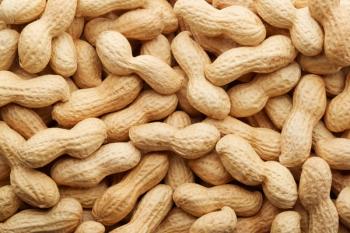
- Vol 36 No 3
- Volume 36
- Issue 3
Impact of milk cereal drink on future obesity risk
Children who are fed milk cereals daily in infancy are more likely to be overweight or obese later in childhood, according to a new report.
Infants who are regularly given milk cereal drinks to supplement regular feedings are at a higher risk for obesity, according to a new report.
Bernt Alm, MD, PhD, associate professor of Pediatrics at the Institute of Clinical Sciences, University of Gothenburg, Sweden, and one of the study authors, says it’s not so much milk cereal itself that is linked to weight gain, but rather how it is consumed.
“Milk cereal drinks are not bad as such; how it's used is the problem,” Alm says. “That is when it's seen not as a meal but as an extra, to supplement other food.”
Milk cereal drinks-such as porridges or cereals given by spoon or added to bottles-are frequently used by parents to satisfy their infants or promote sleep. The American Academy of Pediatrics (AAP) discourages parents from adding cereal to bottles but acknowledges that it is a common practice among parents. The
This new study,
Researchers at Sahlgrenska Academy, University of Gothenburg, Sweden, first linked milk cereal consumption at age 6 months to higher BMI at age 1.5 years. This new study is a follow-up to the original report, evaluating the same group of children from the original study several years later.
The study involved nearly 2000 children from the Halland Health and Growth Study and found that 11.6% of the children were overweight, and 2.3% were considered obese. The research team found that the risk for children to be overweight or obese was nearly double in children who had been given milk cereal drinks daily as infants. The report notes that 85% of the children studied had consumed milk cereal drinks daily as infants. Other contributing factors for being overweight or obese included low parental education levels, parents who were smokers, and children with a family history of obesity, according to the report.
“Drinking milk cereal drink daily in infancy increases the risk of being overweight at 5 years of age. We would advise parents, especially parents of infants with an increased risk of being overweight, to rather introduce and continue gluten in the form of porridge at about 6 months,” Alm says. “If our suspicion of the mechanism of the increased risk of overweight with milk cereal drinks, that it is very easy to drink beyond the point of satiety, is correct, it would probably be safe to feed infants with milk cereal drink by the spoonful, but from the data we have it is not possible to be sure of that.”
Alm says that pediatricians should regularly check infant growth and provide nutritional counseling to parents, especially those who are worried about their infant not being satisfied by milk or formula alone.
“Many parents have these concerns, even if the infant is happy and growing well, and this checkup with subsequent adequate counseling might prevent future weight problems. Porridge could be an alternative, as solids.”
As far as changes to clinical guidance, Alm notes that it is important to remember that the study was conducted in Sweden, where almost all infants consume milk cereal drinks on a daily basis from about age 6 months on. He hopes the study will result in some restraint when it comes to milk cereal use in infants, although the research also showed that milk cereal drinks aren’t the only contributing factors to obesity.
References:
1. Jana LA, Shu J. Cereal in a bottle: solid food shortcuts to avoid. HealthyChildren.org website. Available at:
2. Almquist-Tangen G, Bergman S, Dahlgren J, Lindholm A, Roswall J, Alm B. Consuming milk cereal drinks at one year of age was associated with a twofold risk of being overweight at the age of five. Acta Paediatrica. December 3, 2018. Epub ahead of print.
Articles in this issue
almost 7 years ago
Riddle me this: Depression, suicide, and the screening imperativealmost 7 years ago
What to do if you get sued for malpracticealmost 7 years ago
How to diagnose and treat severe asthmaalmost 7 years ago
Feel more comfortable about recommending HPV vaccinealmost 7 years ago
Painful, tense acral bullae in a 12-year-old girlalmost 7 years ago
Supplements for sadness: Safe or senseless?almost 7 years ago
Congenital upper limb deficiency: A case reportalmost 7 years ago
7 ways to involve parents in carealmost 7 years ago
Fish oil supplements not a fix for obese patients with asthmaalmost 7 years ago
Teenager with ankle pain and swellingNewsletter
Access practical, evidence-based guidance to support better care for our youngest patients. Join our email list for the latest clinical updates.








